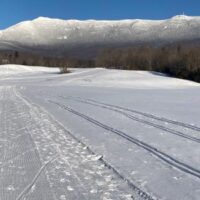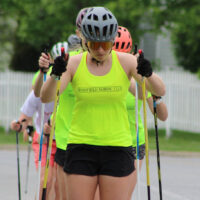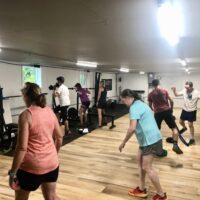Many members of the MNC Junior Team continue to pursue skiing at the college level upon graduating from high school. There’s lots of questions surrounding the college skiing process, which actually begins well before an athlete has finished high school. This page is intended to provide some basic FAQ material on collegiate skiing, and resources to contact coaches!
What schools have ski teams?
In many areas of the US with snow, you’ll also find schools with ski teams. Geographically, broad regions include the East, the Midwest, the Intermountain West, and Alaska. Within these regions you will find designations at the “D1” level of the following:
EISA Eastern Intercollegiate Skiing Association (for the East)
RMISA Rocky Mountain Intercollegiate Skiing Association (for the West)
CCSA Central Collegiate Skiing Association (for the Midwest)
Additionally, at the “D3” level you have a single parent organization:
USCSA US Collegiate Skiing Association is the nation-wide organizational umbrella for a number of competitive collegiate programs.
How do I know where I should apply?
When you look at colleges, you will likely be taking more than simply skiing into account. Good research, campus visits, and help from your guidance counselor are great ways to find information on schools that fit your interests, academic goals, and more. When you take skiing into account, it of course narrows the playing field!
How do I know if I’m “good enough” to ski in college?
The answer to this question has many variables! In New England, we are fortunate to have large race events and competitions where Junior skiers regularly compete in the same races and events as EISA skiers. Events like Eastern Cups and combined Eastern Cup/EISA Carnival races are very big opportunities for Junior skiers to see where they stack up against collegiate competitors.
Additionally, the US Ski and Snowboard points system is a key way for coaches and athletes to have a reasonably objective viewpoint for race performances. If you are interested in skiing for a school outside of the EISA, it is extremely important to have a points ranking in the US Ski and Snowboard database.
Other factors that are significant to college teams and coaches when looking at Junior athletes include Junior Nationals qualification and performances, as well as performances at other large national races like US National Championships (Jan) and US Supertour Finals (March). Competition and strong results at the Eastern HS Championships (March) are also a good benchmark for some schools and particularly the USCSA league.
When do I contact a coach if I am interested in their program?
The ideal time to contact college coaches, if you are interested in a program, is the fall or winter of your Junior year in High School. This gives college coaches a chance to keep up with your results during your Junior year of racing and the start of your Senior year. It also gives you a longer window to communicate with as many coaches and schools as you may be interested in before any application deadlines. Spring of your Junior year is a great time to schedule campus visits, overnight stays with ski team members, and in-person coach meetings.
What’s the best way to contact a coach?
Sending an email (from you, the skier, not a parent) is a great way to contact a coach. It gives you a chance to communicate a little bit about yourself and share some info before an in-person meeting. It also gives the coach your name in a place where they can’t forget it…their inbox! Additionally, many college teams have “recruiting forms” on their websites. These forms are a chance to share info like race results, goals, and more, and often the forms are sent directly to the coach. For your first introduction to a college coach, a great idea is to submit a recruiting form (if applicable) and also follow-up with a separate email immediately.
It is also great to be able to connect with a coach in person. If you schedule a campus visit at a college, it is highly recommended that you also send the ski coach an email to see if you might set up even a brief introductory meeting. Be ready to talk a little bit about your training, racing, goals, and interests.
At races around the region, college coaches will be on-hand with athletes on their team. While you can make an introduction on-the-spot without prior communication, if you’ve previously sent some emails with a coach this is an even better opportunity to head over to a team tent or wax trailer to say a quick hello. It’s best to do this right after the conclusion of the day’s last race, when there is no stress of waxing or racing for either party to worry about. College coaches are all extremely friendly, and you should never underestimate the power of being assertive and making a great impression in-person!
What info should I share about myself?
An interview or meeting with a coach is a great way to get to know more about a program, school, and coaching environment. Sharon Henry has prepared a great piece about the interview process, including sample questions and how to best prepare. Click below to read more.
Many of the college ski teams have “recruit forms” which can be found linked in the chart below. Even so, it’s great to take the initiative to prepare some information about yourself to bring into a meeting. Creating your own “skier resume” is a great way to concisely document your achievements on the racecourse and beyond…click the button below to find a form you can fill out to bring to coach meetings!
Where can I find some coach contact info?
Team websites are a great start, but you can also refer to this chart below for reference! Tabs are included for 4 major designations/regions (EISA, RMISA, CCSA, USCSA).
More questions?
Don’t hesitate to contact Coach Adam or Coach Sara directly! We are more than happy to help with the process, to introduce you to coaches, and to share information about our own time skiing in college.



